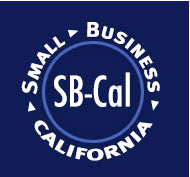On Wednesday Small Business California and I were honored to receive the 2010 Distinguished Service award at the annual convention of the National Association of Government Guaranteed Lenders. The recognition was for our work in getting the Small Business Jobs bill passed.
Small Business California is proud to be a partner with NAGGL and they are also to be thanked for their efforts in getting the bill passed.
Small businesses around the country owe them a debt of gratitude for their tireless efforts on our behalf. A special thank you is extended to Tony Wilkinson the Executive Director of NAGGL and Tom Cator NAGGL’s lobbyist in Washington.
In previous emails I have mentioned that the SBA has not met its obligations required under the energy bills of 2005 and 2007.
See below what the bills required. Small Business California has requested Dr Winslow Sargeant the director of the Office of Advocacy to look into this matter. Small businesses around the country deserve better and we will continue to push for the SBA to obey the law.
EISA 2007
• Required the U.S. Small Business Administration (SBA) to implement a government-wide program, built on the ENERGY STAR Small Business program, to help small businesses (a) become more energy efficient, (b) understand the potential cost savings from improved energy efficiency, and (c) identify financing options for energy-efficiency upgrades.
EPACT 2005
• Required the U.S. Small Business Administration (SBA), in consultation with the DOE and EPA, to implement a government-wide program, built on the ENERGY STAR Small Business program, to help small businesses: (a) become more energy efficient, (b) understand the potential cost savings from improved energy efficiency, and (c) identify financing options for energy-efficiency upgrades;
• Required the DOE to convene an organizational conference for the purpose of establishing an ongoing, self-sustaining national public energy and energy-efficiency education program, examining the interrelationship between energy and its role in the economy and on the environment; and
• Required the SBA to establish a Small Business Energy Efficiency Program through select Small Business Development Centers (SBDC)—through this provision, an SBDC would have been eligible, consistent with State public utility regulations, to act as a “facilitator” for on-bill financing agreements between small businesses, electric utilities, lenders, and the Administration;
• Rendered plant projects that reduce the borrower’s energy consumption by at least 10 percent or that generate renewable energy or renewable fuels, such as ethanol, eligible for 504 loans and increased the maximum debenture to $4 million;
• Expanded the list of permissible uses for Express Loans to include renewable energy and energy efficiency improvements;
• Established a pilot program for reduced 7(a) fees for the purchase of energy-efficient technologies;
• Created a telecommuting pilot program at the SBA aimed at education and outreach;
• Created a priority status within the Small Business Innovation Research and Small Business Technology Transfer programs for small-business concerns participating in energy efficiency or renewable energy research and development projects; and
• Authorized Small Business Investment Companies to issue a new class of debentures, called Energy Saving debentures, for small businesses primarily engaged in the researching, manufacturing, developing, or providing products, goods, or services that reduce the use or consumption of non-renewable energy resources.
• Required the DOE to carry out a national public information program on energy efficiency focused on: (a) the need to reduce energy consumption, (b) the benefits of reduced consumption, (c) the benefits of lower energy costs to economic growth and job creation, and (d) ways to reduce consumption through increased efficiency.
EPACT 2005
• Mandated that the U.S. Department of Energy (DOE), in cooperation with the Environmental Protection Agency (EPA), create a consumer education program focused on the energy savings available from properly conducted maintenance of air conditioning, heating, and ventilating (HVAC) systems;
Scott Hauge
President
Small Business California
2311 Taraval Street
San Francisco, CA 94116
shauge@cal-insure.com
415-680-2109
Subscribe to:
Post Comments (Atom)



No comments:
Post a Comment